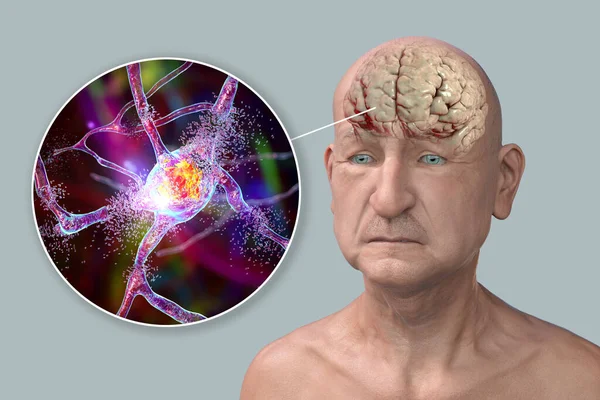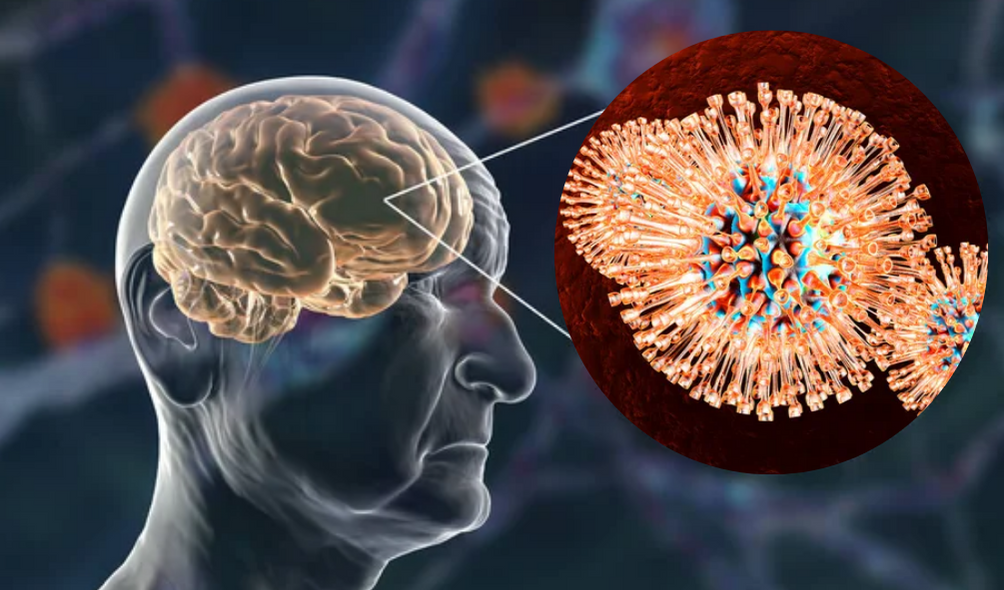The study shows Herpes and Dementia: Doubling the Risk? Dementia, a decline in cognitive function that significantly impacts daily life, affects millions worldwide. While age remains the biggest risk factor, recent research has shed light on potential links between various infections and increased dementia risk. Among these is the herpes simplex virus type 1 (HSV-1), commonly known as the virus that causes cold sores or oral herpes. This article delves into the latest study from Uppsala University in Sweden, explores the connection between HSV-1 and dementia, and offers crucial insights for navigating this emerging area of research.

The Uppsala Study: Doubling the Risk with HSV-1
Published in the Journal of Alzheimer’s Disease, the Uppsala University study followed over 1,000 individuals aged 70 for 15 years. The key finding was striking: individuals with HSV-1 were twice as likely to develop dementia compared to those without the virus. Herpes simplex virus type 2 (HSV-2) typically causes genital herpes and is usually sexually transmitted. Nearly 572,000 people have HSV-2 infections each year, according to the Centers for Disease Control and Prevention (CDC). This echoes previous research highlighting a potential link, but the Uppsala study’s longitudinal approach strengthens the evidence.
It’s Important to Note:
- This was an observational study, meaning it cannot definitively prove causation. While it suggests a correlation, further research is needed to understand the underlying mechanisms.
- The study specifically focused on HSV-1, not herpes simplex virus type 2 (HSV-2), which primarily causes genital herpes. While further research is warranted, the connection between HSV-2 and dementia remains less clear.
HSV-1: Prevalence and Potential Link to Dementia
HSV-1 is incredibly common, infecting an estimated 80% of the adult population in Sweden and 57% to 80% of adults in the United States. While most people experience cold sores at some point, the virus remains dormant in nerve cells after the initial infection.
The potential link between HSV-1 and dementia is complex and still under investigation. Some proposed mechanisms include:
- Chronic inflammation: HSV-1 reactivation can trigger inflammatory responses in the brain, potentially contributing to neurodegeneration.
- Direct neuronal damage: The virus may directly damage nerve cells, impacting cognitive function.
- Interaction with other risk factors: HSV-1 might interact with other known dementia risk factors, such as genetic predisposition and certain medical conditions, amplifying their detrimental effects.
Copyright © 2023 247newsaroundtheworld.com All rights reserved. The information contained in 247newsaroundtheworld.com may not be published, broadcast, rewritten, or redistributed without the prior written authority of 247newsaroundtheworld.com.
Demystifying Dementia: Understanding the Numbers
Dementia affects over 50 million people globally, with Alzheimer’s disease being the most common form. It’s crucial to remember that having HSV-1 does not guarantee dementia. Numerous factors contribute to an individual’s risk, including:
- Age: Dementia risk increases significantly with age, particularly after 65.
- Genetics: Carrying certain genes, such as APOE-ε4, elevates risk.
- Lifestyle: Unhealthy habits like smoking, physical inactivity, and poor diet can contribute.
- Other medical conditions: High blood pressure, diabetes, and heart disease are associated with increased dementia risk.
Key Takeaways: Navigating the Connection between HSV-1 and Dementia
While the Uppsala study is significant, it’s essential to view it within the broader context of dementia research. Here are some key takeaways:
- Further research is crucial: More studies are needed to confirm the findings, understand the mechanisms, and explore potential interventions.
- Focus on overall health: While the HSV-1 link warrants further investigation, maintaining a healthy lifestyle remains crucial for reducing dementia risk. This includes prioritizing regular exercise, a balanced diet, cognitive stimulation, and managing chronic conditions.
- Emerging possibilities: Preliminary research suggests antiviral therapy and even vaccines for HSV-1 might hold promise in reducing dementia risk, but these approaches are still in their early stages.
- Consult your healthcare professional: If you have questions or concerns, speak to your doctor for personalized advice and risk assessment.
What is the link between them?
The exact link between herpes and dementia remains unclear. However, several potential mechanisms are being investigated:
- Inflammation: Herpes infections can trigger chronic inflammation, which has been linked to neurodegeneration and brain damage, both risk factors for dementia.
- Neurological damage: HSV-1 can directly infect nerve cells, potentially causing damage and contributing to cognitive decline.
- Interactions with other risk factors: Herpes infection might interact with other dementia risk factors like genetics or APOE-ε4 allele to increase vulnerability.
It’s important to remember that having HSV-1 does not mean you will develop dementia. Many factors contribute to dementia risk, and individual susceptibility varies greatly.
So, what does this mean for you?
While the research on herpes and dementia is promising, it’s crucial to maintain a balanced perspective. Here’s what you need to know:
- Don’t panic: The study highlights a potential association, not a definitive cause-and-effect relationship.
- Focus on overall health: Maintaining a healthy lifestyle with regular exercise, a balanced diet, and cognitive stimulation remains essential for brain health, regardless of herpes status.
- Consult your doctor: If you have concerns about your individual risk or dementia in general, talk to your healthcare professional. They can provide personalized guidance and address any specific questions you might have.
Looking Forward: Where Do We Go From Here?
While the Uppsala University study provides valuable insights, further research is needed to:
- Confirm the findings: More studies with diverse populations and longer follow-up periods are necessary to solidify the link.
- Explore the mechanisms: Understanding how HSV-1 might contribute to dementia can guide the development of preventive or therapeutic interventions.
- Investigate potential interventions: Exploring antiviral therapy or vaccines for HSV-1, particularly for individuals at higher risk, could be a potential avenue for future research and prevention strategies.
Remember:
- Having HSV-1 is common, and most people never experience dementia.
- Individual risk for dementia varies greatly, influenced by multiple factors.
- Maintain a healthy lifestyle and regularly visit your doctor for optimal brain health.
This research represents a significant step forward in understanding the complex relationship between HSV-1 and dementia. However, it’s vital to view it with caution and perspective. By emphasizing the importance of comprehensive research, a healthy lifestyle, and open communication with healthcare professionals, we can navigate this emerging area of knowledge and work towards a future where dementia prevention and treatment are optimized.
Conclusion
The Uppsala University study has sparked important discussions about the potential link between HSV-1 and dementia. While the findings are intriguing, they require further investigation to confirm and understand the mechanisms involved. Remember, having HSV-1 does not guarantee dementia, and numerous other factors contribute to dementia risk. By focusing on a healthy lifestyle, managing other risk factors, and staying informed about ongoing research, we can empower ourselves to make informed choices for our brain health and well-being.
Note: This article is written based on scientific evidence found by the 247newsaroundtheworld.com team. Sources are duly referenced with keywords hyperlinked to source websites and are clickable for reference.






